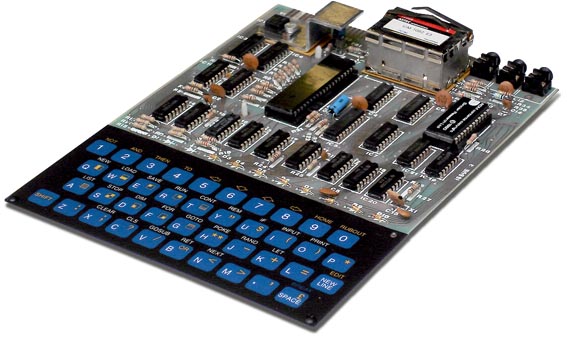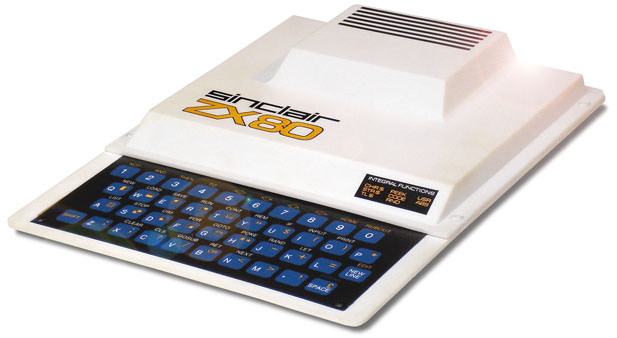My first computer
-
You know what, the PS/2 entry level actually had the 8086! I had no idea, it was so late in the game, I can't believe that they put in such an ancient chip. Basically all models sold were 286.
-
The PS/2 released in 1987, and was a joke. It's entry level processors had been on the market since 1978! So chips that predated the Commodore VIC=20 by two years, were powering IBM's "flagship" line of desktops in 1987. It's amazing that anyone ever bought a PC.
-
@scottalanmiller said in My first computer:
@travisdh1 said in My first computer:
@scottalanmiller said in My first computer:
@pete-s said in My first computer:
Which reminds me of IBM's PS/2.
What a train wreck that thing was.
Guess what made up the entire computer lab in my high school... Yep IBM PS/2. They actually network booted.
That's crazy. that must be all that IBM ever managed to sell.
My theory is that some company bought a whole bunch of them, realized they were terrible, and donated them to the school for a tax write off.
-
Robotron Z1013 If I recall correctly, my grandfather got it for me one Christmas season/New Year/Something. It was a bitch to get working. I also had a monitor that was not monochrome but basically was because it was a modified, broken colour TV set that only displayed green.

-
@tonyshowoff said in My first computer:
Robotron Z1013 If I recall correctly, my grandfather got it for me one Christmas season/New Year/Something. It was a bitch to get working. I also had a monitor that was not monochrome but basically was because it was a modified, broken colour TV set that only displayed green.
That looks awesome.
Reminds me of the Sinclair ZX80. You could buy it as a kit and solder it together yourself.


-
@pete-s I think it was essentially a Z80 clone of sorts. It was also a kit computer, and I know that it was compatible with the same tape drives/players and BASIC.
-
@tonyshowoff said in My first computer:
@pete-s I think it was essentially a Z80 clone of sorts. It was also a kit computer, and I know that it was compatible with the same tape drives/players and BASIC.
Yes, I assumed it was a kit since you said it was a bitch to get working

-
@travisdh1 said in My first computer:
@scottalanmiller said in My first computer:
@travisdh1 said in My first computer:
@scottalanmiller said in My first computer:
@pete-s said in My first computer:
Which reminds me of IBM's PS/2.
What a train wreck that thing was.
Guess what made up the entire computer lab in my high school... Yep IBM PS/2. They actually network booted.
That's crazy. that must be all that IBM ever managed to sell.
My theory is that some company bought a whole bunch of them, realized they were terrible, and donated them to the school for a tax write off.
They had all apple IIe's at my computer labs growing up. I was always told it was because apple basically gave them to schools for near free, maybe at cost or something, and that it was part of the strategy to get people on one particular platform at an early age. It was always inconvenient because the files were never compatible between our home PC and the ones at the schools.
-
TI 99/4A
Graduated to IBM PCjr. Chiclet keyboard was ahead of its time! -
@scott said in My first computer:
TI 99/4A
Graduated to IBM PCjr. Chiclet keyboard was ahead of its time!Hahaha, the PC Jr. Good times.
-
@donahue said in My first computer:
@travisdh1 said in My first computer:
@scottalanmiller said in My first computer:
@travisdh1 said in My first computer:
@scottalanmiller said in My first computer:
@pete-s said in My first computer:
Which reminds me of IBM's PS/2.
What a train wreck that thing was.
Guess what made up the entire computer lab in my high school... Yep IBM PS/2. They actually network booted.
That's crazy. that must be all that IBM ever managed to sell.
My theory is that some company bought a whole bunch of them, realized they were terrible, and donated them to the school for a tax write off.
They had all apple IIe's at my computer labs growing up. I was always told it was because apple basically gave them to schools for near free, maybe at cost or something, and that it was part of the strategy to get people on one particular platform at an early age. It was always inconvenient because the files were never compatible between our home PC and the ones at the schools.
That and the Apple ][ were just awful.
I still have the one from my elementary school.